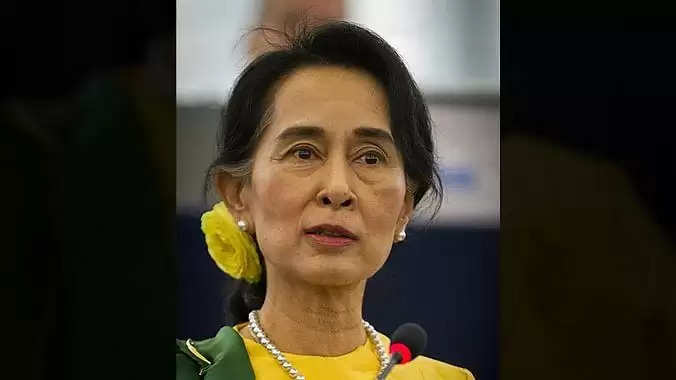Suu Kyi’s party expected to win second term in Myanmar polls

Naypyidaw
Myanmar’s citizens go to the polls Sunday to sustain the fledgeling democracy they helped install just five years ago.
There are about 37 million registered voters, though turnout is expected to suffer because of a recent surge in coronavirus cases.
In 2015, the excitement was high over the opportunity to end more than five decades of army-directed rule.
The National League of Democracy party of Nobel Peace Prize laureate Aung San Suu Kyi roared to a landslide election victory, and she became her country’s leader after many hard years at the forefront of a non-violent struggle against military dictatorships that won international admiration.
This year, her party is expected to top the polls again, but some critics feel her administration has failed to embrace democratic principles.
Chances for real reform were always dicey, as the 2008 constitution drafted under the military assures it of enough seats in parliament to block charter changes. Key ministries are also under the control of the military.
Critics accuse 75-year-old Suu Kyi and her party of being more concerned about entrenching itself in power than encouraging a broad-based democracy.
Even the voting process has become enmeshed in controversy, as the state election commission has been accused of conniving with Suu Kyi’s ruling party by cancelling voting in some areas where parties critical of the government were certain to win seats.
The Union Election Commission insisted the voting was cancelled because of armed conflict with ethnic guerrillas in those areas.
The decision was one of several points criticised this past week by Thomas Andrews, the UN special rapporteur for human rights in Myanmar.
Buddhist-majority Myanmar, he said, would not be able to hold free and fair elections as long as the right to vote is denied based on race, ethnicity or religion, as it is with the Rohingya.
Long-standing prejudice against the Muslim Rohingya minority, whom many consider having immigrated illegally from South Asia even though their families have lived in Myanmar for generations, has deprived most of them of the rights of citizenship.
Western friends of Myanmar were shocked at the brutal 2017 counter-insurgency campaign by Myanmar’s army that drove about 740,000 Rohingya to flee into neighbouring Bangladesh, drawing accusations of genocide.
It also sent Suu Kyi’s reputation with Western admirers into a tailspin when she failed to restrain the security forces.
But for most people in Myanmar, the Rohingya are not an issue in the election.
Nevertheless, Suu Kyi remains the country’s most popular political figure by far. (PTI)

















